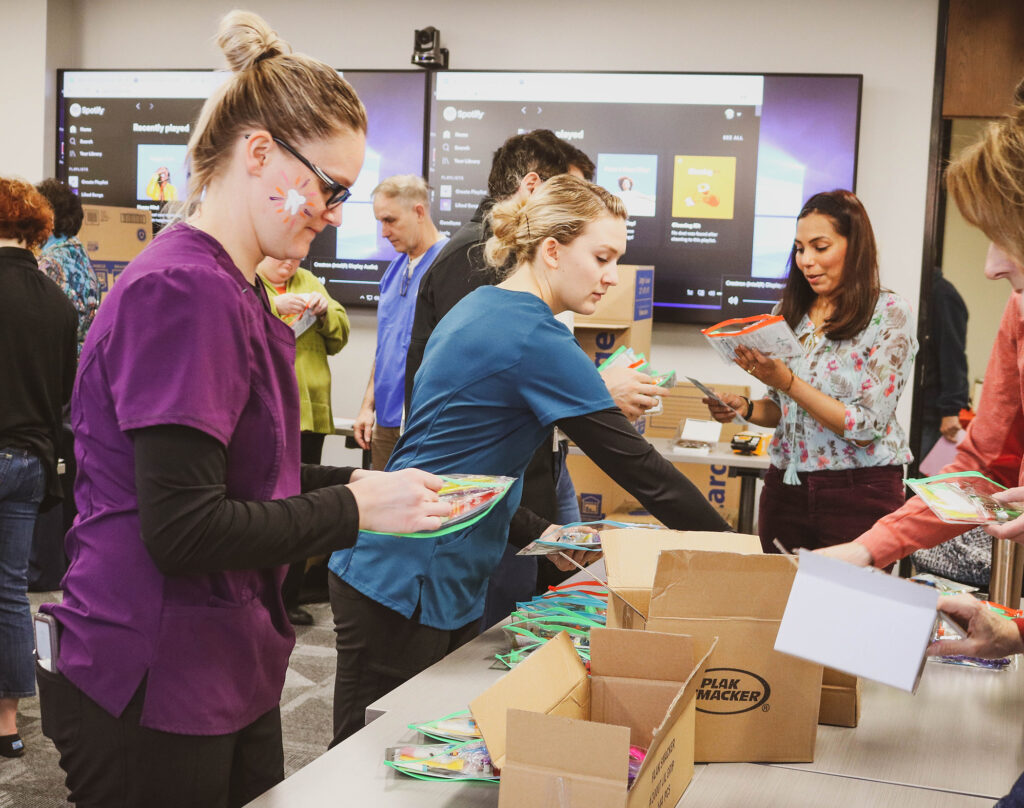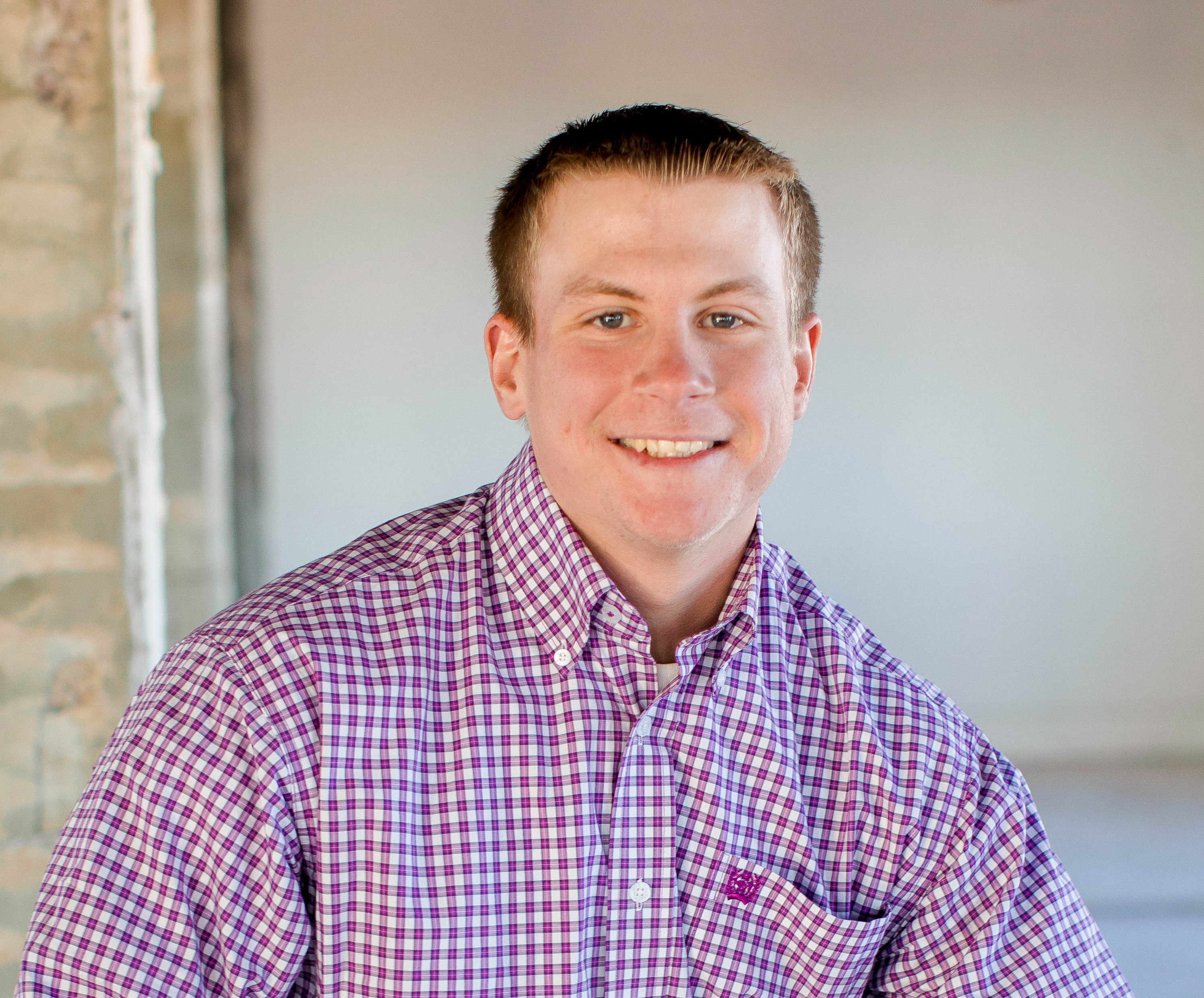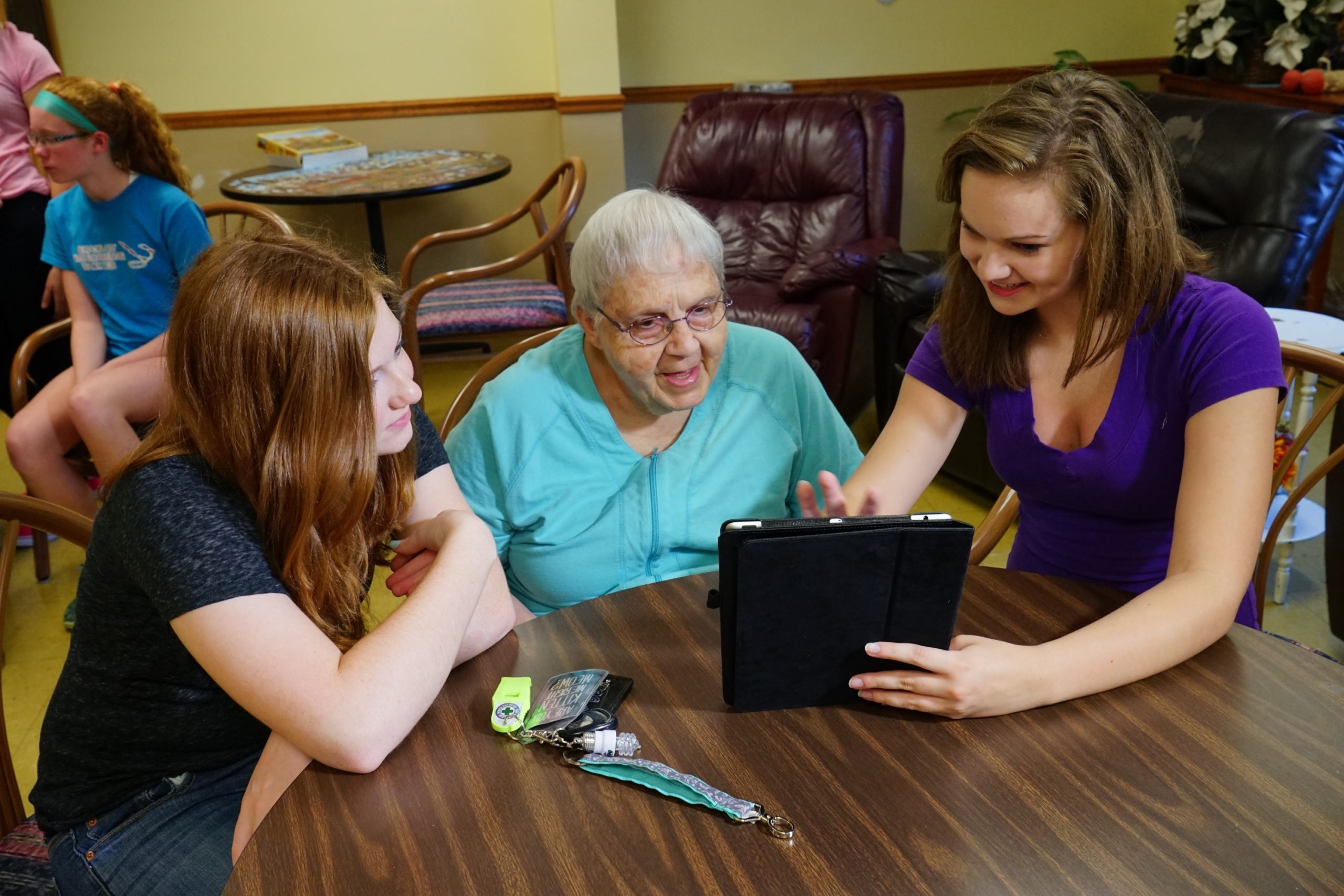
Imagine living in a world that always looked upstream to address the problems we face. Instead of repeatedly putting out fires (whether real or metaphorical), we looked at how to prevent them in the first place. That is precisely the approach numerous organizations are taking across Nebraska when it comes to addressing dental health. Intervene early—prevent suffering later.
February is National Children’s Dental Health Month and there is no better time to talk about the important work being done across the state to improve lives and help children get the care they need. Nebraska Community Foundation has been fortunate to play a convening role in this effort—a role we often find ourselves in because of the relationships we nurture with more than 270 communities across the state.
We are also fortunate to have connections with so many generous donors—the kind of people who want to leave the world a little better than they found it and alleviate the challenges they faced for the next generation. One particular anonymous donor struggled with dental issues throughout their life due to a lack of access to care as a child. That hardship transformed into motivation to ensure young Nebraskans didn’t suffer the same fate.
Almost 65% of Nebraska third graders have experienced tooth decay of some variety, according to the Department of Health and Human Services’ 2016 Nebraska Oral Health Survey. Nearly half of the children enrolled in Head Start programs throughout the state reported tooth decay as well. That’s troubling for experts like Nebraska State Dental Director Dr. Charles F. Craft because, among other concerns, untreated decay can lead to a condition known as Early Childhood Caries (ECC) which can lead to long term difficulties with drinking, eating, sleeping and school performance.
Access to quality dental care is especially challenging to those living in rural communities across the state—the kind of communities we work with at Nebraska Community Foundation. I personally know many Greater Nebraskans who have to take off a half day of work (or more) to take their kids to the dentist. For many parents, that’s simply not an option. In response, the Nebraska DHHS Office of Oral Health created a statewide program, called “Nebraska Teeth Forever,” that set up dental disease prevention teams within local health departments. Nebraska Community Foundation now supports several of these health departments and teaches them how to reach sustainability.
In 2022, North Central District Health Department (NCDHD) in O’Neill completed a 5-year, $125,000 challenge grant issued by Nebraska Community Foundation and an anonymous donor for the benefit of the Miles of Smiles school-based dental disease prevention program. The department matched those funds on a one-to-one basis, receiving donations from local foundations, Nebraska Community Foundation affiliated funds, county governments and individual donors, many of whom made multi-year pledges. These local donors contributed nearly $219,000— above and beyond challenge requirements.
The challenge grant enabled NCDHD to expand Miles of Smiles, which offers education, oral screenings, fluoride varnish, dental sealants, and supplies in school-based settings. The department provides services to the 38 elementary and middle schools within its nine-county service area. They’ve increased participation to 56% in 2022 (up from 49% in the 2017/2018 school year). Miles of Smiles also added more sealant programs, boosted marketing efforts for the program, increased social media use, visits with school administrators, radio advertisements and more. The funding also allowed NCDHD to hire two contracted dental hygienists and a community health worker to conduct clinics and assist with education and marketing.
Similar challenge grants are underway with the Panhandle Public Health District in Scottsbluff, Elkhorn Logan Valley Public Health Department in Wisner, Two Rivers Public Health Department in Kearney and Four Corners Health Department in York.
The Panhandle Public Health District’s Miles of Smiles equivalent is called Keeping Teeth Strong. The program partners with 19 school districts across the Panhandle along with Head Start to provide preventive dental services to children. Issues of access are even more pronounced in places like the Panhandle. Out of the 12 counties, eight are state-designated shortage areas for general dentistry.
Keeping Teeth Strong is making a huge impact by administering thousands of dental screenings, fluoride varnishes and dental sealants every year. Like Miles of Smiles, a challenge grant opportunity has empowered them to grow their reach with 57% of students participating in the program and eight new schools enrolled. Future goals include growing the number of dental hygienists in the region and continuing to add schools to the program.
Keeping Teeth Strong also hopes to distribute more Early Dental Health Starter Kits for babies and toddlers made possible through a partnership between Nebraska’s Department of Health and Human Services, the University of Nebraska Medical Center’s College of Dentistry, NCF and the same anonymous donor. The four entities are putting these starter kits in the hands of thousands of families, guiding Nebraska children down a path toward comprehensive wellness for the rest of their lives. The kits include brushes for multiple stages of development accompanied by instructions and a two-minute timer. The DHHS Office of Oral Health and Dentistry began distributing kits seven years ago to local health departments throughout Nebraska. As of 2022, NCF had sponsored the distribution of nearly 37,000 kits. The partners agreed to continue the effort through at least 2023 and distribute another 25,000 kits.
I am in awe of the ways these innovative Nebraskans have come together and looked upstream to solve the challenges that children’s dental health present. I am proud of the Nebraska Community Foundation affiliated funds who have stepped up to support the furtherance of these important programs. I wonder how many other issues we face might be improved with this kind of collaborative, upstream thinking?



